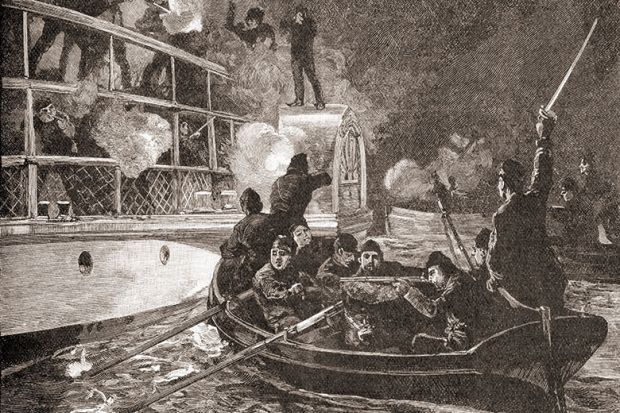Kathleen Burk’s previous book on the subject of Great Britain and the US, Old World, New World: The Story of Britain and America (2008), is a great book. She is a master of the interrelationship between the two societies. The Lion and the Eagle examines how they dealt with clashes of interest in the areas both were expanding into.
Burk’s description of both Britain and the US as “empires” is unwieldy. I agree that westward expansion causes the US to think of itself in imperial terms even before the Spanish-American war in 1898. But she treats American territorial expansion (consolidation of the state) as if it were the same as the conquest of territories it does not absorb into the Union (the technical definition of empire) and as influence over sovereign countries (hegemony). By defining “empire” so expansively, the concept isn’t useful.
On the opening page, Burk asserts that the US is an empire and is therefore no different from any other empire, yet she admits two pages later that the US “was much less a colonial empire than the semi-controller of a range of client states”. In other words, just a powerful state seeking to influence other states.
The book also doesn’t take account of the US becoming more liberal as it grew more powerful during the 20th century, which makes its dominance different from that of Britain and other previous empires: more acceptable to others and cheaper to sustain.
Thus, Burk cannot, for example, square the circle of the US wanting Britain to retain a military presence east of Suez in 1956 with “the Americans inflicting a final crushing blow” against the British Empire. The US didn’t oppose Britain’s military operations in Suez because it wanted to supplant a rival empire in the region, but because US policy favoured decolonisation and self-determination. Ideas matter more than Burk gives them credit for.
There are glimpses of Burk at her best: acknowledging British citizens of Canada had the same greed for westward expansion as their American counterparts, recounting the legal aspects of the 1837-8 incident when Canadian rebels commandeered a ship called the Caroline, describing secretary of state Philander Knox’s 1909 efforts to “neutralize” Japanese and Russian railroads in China. She is especially adept at weaving financial history into politico-military crises, from how British creditors were satisfied for their losses stemming from the American Revolution to tax expenditures for the Napoleonic wars (£550 million) and stock market losses after President Grover Cleveland’s Venezuela declaration asserted the primacy of US over European interests in Latin America ($400 million in two days). Her handling of the economic aspects of the Suez crisis is especially adept.
Yet Burk cuts off the story abruptly in 1972, with only a scant “Envoi” for a conclusion. This gives the book an unfinished feel: there are deeply researched chapters on the war of 1812, delineating the Canadian border, vying for influence in China and Japan and Britain’s ebbing power, yet neither the introduction nor the three-page conclusion puts the intervening 423 pages in a meaningful context. Burk doesn’t tell us why these stories matter or what it all adds up to.
Kori Schake is the deputy director general of the International Institute for Strategic Studies and the author of Safe Passage: The Transition from British to American Hegemony (2017).
The Lion and the Eagle: The Interaction of the British and American Empires, 1783-1972
By Kathleen Burk
Bloomsbury, 576pp, £30.00
ISBN 9781408856178
Published 23 August 2018
Register to continue
Why register?
- Registration is free and only takes a moment
- Once registered, you can read 3 articles a month
- Sign up for our newsletter
Subscribe
Or subscribe for unlimited access to:
- Unlimited access to news, views, insights & reviews
- Digital editions
- Digital access to THE’s university and college rankings analysis
Already registered or a current subscriber? Login








